
Weitzman ECHO Peer Recovery Support in Ohio: Peer Recovery Support Across the Continuum/What is Peer Support? (February 14, 2024)
Program Information
Weitzman ECHO Peer Recovery Support in Ohio meets the 2nd and 4th Wednesday of every month from 12-1pm ET.
This ECHO continuing education program connects Certified Peer Recovery Supporters in rural areas of Ohio to a community of other Peer Supporters facing similar issues working with peers and in the workplace. Experienced faculty members who are either Peer Supporters themselves, train Peer Supporters, or are medical or behavioral health providers who work collaboratively with Peer Supporters attend every session to train participating Peer Supporters and offer guidance.
Offered in partnership with the Ohio Department of Mental Health and Addiction Services, this Peer Recovery Support ECHO is free for rural Peer Supporters in Ohio. This ECHO will meet twice monthly for 8 months starting Wednesday, February 14th. Each one-hour ECHO session will have a 25-minute presentation by experienced faculty on a high-need topic relevant to Peer Recovery Supporters such as crisis intervention and de-escalation, trauma-informed care, boundaries with peers, goal setting, and teamwork.
Each session will also include a short presentation by a participating Peer Supporter of a challenge they are facing in their work. Afterward, faculty and participating Peer Supporters on the call will have an open discussion to offer recommendations on how to best support peers and brainstorm actionable solutions for these challenges.
Continuing education units will be provided to participating Certified Peer Recovery Supporters, Youth Peer Supporters, and Family Peer Supporters in compliance with Ohio Department of Mental Health and Addiction Services recertification requirements.
Acknowledgement of Support
Peer Recovery Support ECHO for Ohio is offered in collaboration with the Ohio Department of Mental Health and Addiction Services and is being offered as part of the HRSA's Rural Communities Opioid Response Program to improve rural health outcomes.
This project is supported by the Health Resources and Services Administration (HRSA) of the U.S. Department of Health and Human Services (HHS) as part of an award totaling $300,000 with 0% financed with non-governmental sources. The contents are those of the author(s) and do not necessarily represent the official views of, nor an endorsement, by HRSA, HHS, or the U.S. Government. For more information, please visit HRSA.gov.
Target Audience
This activity is appropriate for Certified Peer Recovery Supporters, Youth Peer Supporters, and Family Peer Supporters.
Learning Objectives
Upon completion of this activity, participants should be able to do the following:
- Illustrate effective peer engagement strategies to set and maintain boundaries, demonstrate ethical reasoning, and use de-escalation techniques to encourage appropriate peer interactions.
- Adapt professional skills and individual strengths within the work environment to maximize potential, advocate for the Peer Support role, enhance communication, and better navigate challenges.
- Implement self-care strategies to counteract the impact of compassion fatigue, burnout, and direct or secondary exposure to trauma.
- Recognize the importance of addressing social determinants of health and assisting peers in navigating the recovery system and accessing resources.
- Demonstrate cultural humility and an increased awareness of how race, ethnicity, gender, and sexual orientation impact a peer’s recovery.
- Understand current behavioral and medical treatment options for substance use disorders to assist peers in navigating their recovery journeys.
FAQs
What is Project ECHO®? Project ECHO® was developed by Dr. Sanjeev Arora at the University of New Mexico Health Sciences Center and is a collaborative model of healthcare education and care management that helps improve knowledge and skills to improve patient care. ECHOs are designed to be a longer-term continuing education programs to create a virtual community for health care workers to connect, learn, and receive guidance from peers and experts. This ECHO learning community provides mentorship and peer support, making this model unique and providing a long-lasting impact beyond typical e-learning styles. Weitzman ECHO clinics are specifically designed to meet the needs of safety net primary care providers and their communities like providers practicing in federally qualified health centers (FQHCs).
How is each ECHO session structured? Each ECHO session consists of a presentation by the ECHO's experienced faculty members and a challenge discussion presented by participating Peer Recovery Supporters. During each ECHO session, participants learn skills and receive applicable advice from the faculty presentation and the Peer Supporters' discussions.
When do sessions occur? This Project ECHO will occur twice monthly for one hour. Our kickoff session for the aging module will occur on February 14, 2024, and sessions will occur every 2nd and 4th Thursday of each month from 12pm to 1pm ET.
What level of participation is expected? This ECHO consists of 16 sessions in total. ECHO participants are expected to:
- Attend at least 50% of sessions
- Complete pre- and post-surveys
- Submit at least one challenge for discussion
- Share webcams, when available
- Engage during peer discussion
How do I join the live sessions? Do I need any special equipment? Weitzman ECHO sessions are held virtually using the Weitzman Education Platform and Zoom Video Conferencing. Access is available on any computer with an internet connection. For instructions on how to join the live session, follow these Step-by-step instructions: Entering a Live Session.
How do I claim credit and download my CE certificate? After the live session is completed, the session evaluation will be available right on the platform. Once you complete the session evaluation, you will be able to claim your credits and download your certificate. This program provides continuing education units for recertification required for Certified Peer Supporters by the Ohio Department of Mental Health and Addiction Services.
For additional questions about this ECHO program, please contact Coralie Arango, Education Specialist, at [email protected].
Schedule
This activity meets the second and fourth Wednesday of every month from 12-1pm ET. Below are the dates of the sessions:
- February 14, 2024
- February 28, 2024
- March 13, 2024
- March 27, 2024
- April 10, 2024
- April 24, 2024
- May 8, 2024
- May 22, 2024
- June 12, 2024
- June 26, 2024
- July 10, 2024
- July 24, 2024
- August 14, 2024
- August 28, 2024
- September 11, 2024
- September 25, 2024
Faculty
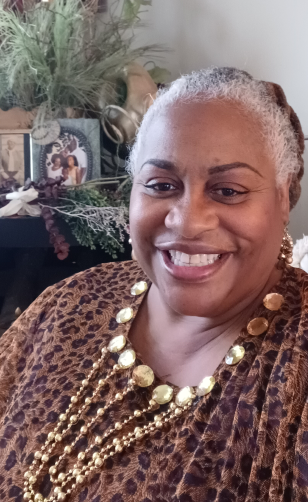 Jody Bell, CPRS, CDCA is an Ohio Peer Recovery Supporter, Peer Educator, and Peer Advocate and has dedicated herself to advocating for the support and empowerment of individuals challenged with Substance Use Disorder and Mental Illness in various Recovery Oriented Systems Of Care for over 20 years. Jody served 16 years for NAMI Ohio Peer-To-Peer Curriculum State Trainer, OhioMHAS Peer Recovery Supporter Certification and Co-Facilitator. Jody participated on the Integrated Care Technical Assistance and Consultation Team (TACT) as the Peer Recovery Supporter Consultant and Trainer for Northeast Ohio Medical University (NEOMED) Best Practices In Schizophrenia Treatment (BeST Center), creating opportunities for pre-work force professionals (Project ECHO ) and their counterparts to work together using guiding principles for interprofessional team-based models. She also has her own private practice at OhioMHAS Northcoast Behavioral Healthcare as the Peer Recovery Supporter/Educator since 2017. Jody has received achievement awards from NAMI Greater Cleveland the Eugene Bruno Memorial Organizational Award for Peer Support Services for the Year in 2011, ADAMHS Board of Cuyahoga County Peer Advocate & Support Award in 2010, ADAMHS Board Annual Meeting Consumer/Client Involvement Award in 2009, and the Roads to Recovery Plenary Presenter in 2009.
Jody Bell, CPRS, CDCA is an Ohio Peer Recovery Supporter, Peer Educator, and Peer Advocate and has dedicated herself to advocating for the support and empowerment of individuals challenged with Substance Use Disorder and Mental Illness in various Recovery Oriented Systems Of Care for over 20 years. Jody served 16 years for NAMI Ohio Peer-To-Peer Curriculum State Trainer, OhioMHAS Peer Recovery Supporter Certification and Co-Facilitator. Jody participated on the Integrated Care Technical Assistance and Consultation Team (TACT) as the Peer Recovery Supporter Consultant and Trainer for Northeast Ohio Medical University (NEOMED) Best Practices In Schizophrenia Treatment (BeST Center), creating opportunities for pre-work force professionals (Project ECHO ) and their counterparts to work together using guiding principles for interprofessional team-based models. She also has her own private practice at OhioMHAS Northcoast Behavioral Healthcare as the Peer Recovery Supporter/Educator since 2017. Jody has received achievement awards from NAMI Greater Cleveland the Eugene Bruno Memorial Organizational Award for Peer Support Services for the Year in 2011, ADAMHS Board of Cuyahoga County Peer Advocate & Support Award in 2010, ADAMHS Board Annual Meeting Consumer/Client Involvement Award in 2009, and the Roads to Recovery Plenary Presenter in 2009.
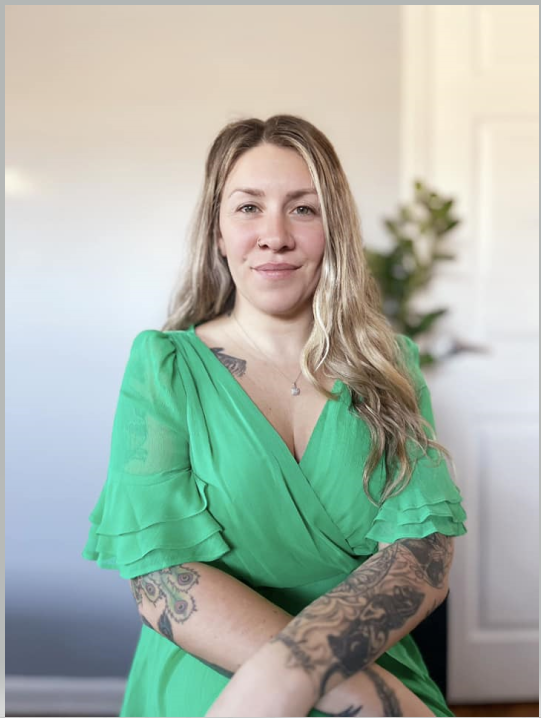 Hannah Schilling, CDCA II, CPRS, OCPSA is a distinguished Certified Peer Recovery Supporter, Peer Support Supervisor, Community Health Worker, Ohio Prevention Specialist Assistant, and CDCA II, and is a pivotal figure in the field of substance use disorder recovery and support. As a recognized panel expert for Buckeye SCOPE, focusing on aiding children impacted by the opioid epidemic, and a significant participant in the Deflection ECHO and EMPOWER projects, Hannah demonstrates an unwavering commitment to creating positive change. With a career spanning several critical roles, including her time as Substance Use Treatment Coordinator at Good Samaritan Hospital in Cincinnati and as a leader in peer support initiatives for Hamilton County and Colerain Township Quick Response Teams, Hannah has consistently been at the forefront of innovative approaches in her field. Currently, she excels as a Health Coordinator at Hamilton County Public Health, where she is responsible for developing and implementing programs that educate and assist both professionals and community members in compassionately addressing substance use disorders. As the Founder & Executive Director of On the Front Lines Community Alliance, Hannah Schilling has cultivated a dynamic network for over 300 recovery professionals. This organization not only provides a platform for critical care discussions but also organizes monthly networking events and disseminates a comprehensive newsletter, furthering the professional development of Peer Recovery Support within the substance use disorder healthcare system. Hannah's influential work in promoting harm reduction and awareness in the Hamilton County area has been a cornerstone in establishing vital dialogues and actions, contributing substantially to the healing of communities affected by drug use. Her dedication to this cause reflects her deep-seated commitment to both professional excellence and personal compassion in addressing the challenges of substance use disorders.
Hannah Schilling, CDCA II, CPRS, OCPSA is a distinguished Certified Peer Recovery Supporter, Peer Support Supervisor, Community Health Worker, Ohio Prevention Specialist Assistant, and CDCA II, and is a pivotal figure in the field of substance use disorder recovery and support. As a recognized panel expert for Buckeye SCOPE, focusing on aiding children impacted by the opioid epidemic, and a significant participant in the Deflection ECHO and EMPOWER projects, Hannah demonstrates an unwavering commitment to creating positive change. With a career spanning several critical roles, including her time as Substance Use Treatment Coordinator at Good Samaritan Hospital in Cincinnati and as a leader in peer support initiatives for Hamilton County and Colerain Township Quick Response Teams, Hannah has consistently been at the forefront of innovative approaches in her field. Currently, she excels as a Health Coordinator at Hamilton County Public Health, where she is responsible for developing and implementing programs that educate and assist both professionals and community members in compassionately addressing substance use disorders. As the Founder & Executive Director of On the Front Lines Community Alliance, Hannah Schilling has cultivated a dynamic network for over 300 recovery professionals. This organization not only provides a platform for critical care discussions but also organizes monthly networking events and disseminates a comprehensive newsletter, furthering the professional development of Peer Recovery Support within the substance use disorder healthcare system. Hannah's influential work in promoting harm reduction and awareness in the Hamilton County area has been a cornerstone in establishing vital dialogues and actions, contributing substantially to the healing of communities affected by drug use. Her dedication to this cause reflects her deep-seated commitment to both professional excellence and personal compassion in addressing the challenges of substance use disorders.
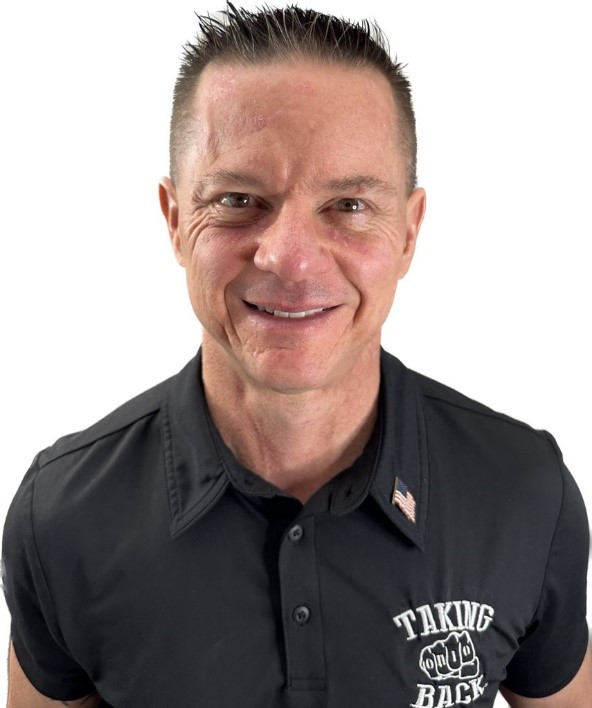
Michael Werner, CPRS has been an experienced Certified Peer Recovery Specialist for over 5 years and a Founder and Co-Executive Director of Taking Back Ohio, a nonprofit serving the recovery needs to build a positive future for those in recovery. Michael is also differently-abled veteran who has served twice in Operation Iraqi Freedom. Michael is currently a CPRS Group Facilitator at Sandusky Artisans Recovery Community Center, a Veteran Peer Recovery Supporter at the Erie County Jail, and on the Erie County Ohio Veteran Court Planning Committee. Michael is Trauma-Informed and mental Health First Aid Certified. He recently graduated in 2023 with his Bachelor of Arts in Communications from Bowling Green State University.
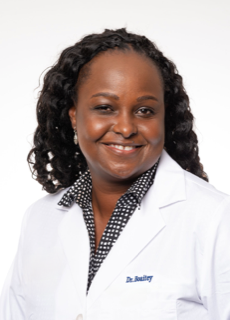 Sarah Boaitey, MD completed her medical degree at Kwame Nkrumah University of Science and Technology, Ghana, West Africa. she went on to complete a residency in Internal Medicine at St. Vincent Charity Medical center, Cleveland. Following this, she pursued a fellowship in Addiction Medicine at Metro Health system under Case Western Reserve University, Cleveland Ohio, honing her expertise and knowledge. She also holds a Master’s degree in Public health and Health administration from Towson University, Maryland. She currently works at Signature Health Inc., where she blends my expertise in both Primary Care and Addiction Medicine. She is a dedicated participant in the medical community, maintaining active memberships in several prestigious professional organizations including the American College of Physicians (ACP), American Society of Addiction Medicine (ASAM), and the Ohio Society of Addiction Medicine (OHSAM). When not performing my clinical duties, she enjoys cooking, reading Christian literature, traveling, and most importantly spending time with my family.
Sarah Boaitey, MD completed her medical degree at Kwame Nkrumah University of Science and Technology, Ghana, West Africa. she went on to complete a residency in Internal Medicine at St. Vincent Charity Medical center, Cleveland. Following this, she pursued a fellowship in Addiction Medicine at Metro Health system under Case Western Reserve University, Cleveland Ohio, honing her expertise and knowledge. She also holds a Master’s degree in Public health and Health administration from Towson University, Maryland. She currently works at Signature Health Inc., where she blends my expertise in both Primary Care and Addiction Medicine. She is a dedicated participant in the medical community, maintaining active memberships in several prestigious professional organizations including the American College of Physicians (ACP), American Society of Addiction Medicine (ASAM), and the Ohio Society of Addiction Medicine (OHSAM). When not performing my clinical duties, she enjoys cooking, reading Christian literature, traveling, and most importantly spending time with my family.
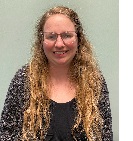 Heather Bruno, LPCC-S, LICDC-CS earned her Bachelor’s Degree in Psychology and her Master’s Degree in Clinical Mental Health Counseling from Ohio University. Heather has been employed at Hopewell Health Centers for the past eight years providing direct clinical care to clients who have co-occurring mental health and substance use concerns, with a focus on clients involved in the court system. She is currently the Chemical Dependency Services Supervisor where she provides both direct care to a small caseload of clients as well as provides supervision of case management staff and supervises Our House, a 5-bed men's recovery house, in Logan, OH. Heather has been involved in innovative programs addressing substance use concerns including Rapid Access, recovering housing, and Project HOPE, as well as, coordinates mental health services with the Hocking County Municipal Court drug court programs.
Heather Bruno, LPCC-S, LICDC-CS earned her Bachelor’s Degree in Psychology and her Master’s Degree in Clinical Mental Health Counseling from Ohio University. Heather has been employed at Hopewell Health Centers for the past eight years providing direct clinical care to clients who have co-occurring mental health and substance use concerns, with a focus on clients involved in the court system. She is currently the Chemical Dependency Services Supervisor where she provides both direct care to a small caseload of clients as well as provides supervision of case management staff and supervises Our House, a 5-bed men's recovery house, in Logan, OH. Heather has been involved in innovative programs addressing substance use concerns including Rapid Access, recovering housing, and Project HOPE, as well as, coordinates mental health services with the Hocking County Municipal Court drug court programs.
Weitzman Institute Disclosure Statement
It is the policy of the Weitzman Institute to ensure that Continuing Education (CE) activities are independent and free of commercial bias. To ensure educational content is objective, balanced, and guarantee content presented is in the best interest of its learners' and the public, the Weitzman Institute requires that everyone in a position to control educational content disclose all financial relationships with ineligible companies within the prior 24 months. An ineligible company is one whose primary business is producing, marketing, selling, re-selling or distributing healthcare products used by or on patients. Examples can be found at accme.org.
Faculty participating in a Weitzman Institute-sponsored activity must disclose to the planning committee and audience all financial or other relationship(s) with ineligible companies.
Faculty Disclosures
No faculty disclosed a relevant financial relationship for this program.
Coralie Arango
Jody Bell, CPRS
Sarah Boaitey, MD
Heather Bruno, LPCC-S, LICDC-CS
Hannah Schilling, Certified Peer Recovery Supporter, Peer Support Supervisor, Community Health Worker, Ohio Prevention Specialist Assistant and CDCA II
Michael Werner, BAC, PRS-S
Available Credit
- 1.00 Participation Hour(s)You are able to download an unaccredited Participation Certificate for your records if you are not able to use any of the credit types provided for this activity or if this activity does not offer accredited CME/CE credits.
- Please register for this activity prior to the start of the first session you wish to attend.
- If you are attempting to register for this activity after the session you wish to attend has started and the activity says "expired," please submit a ticket to our support center. A member from our team will respond as soon as possible.
Required Hardware/Software
- This online activity requires use of a device connected to the Internet, such as a computer tablet or mobile device.
- The activity will take place over Zoom, which must be accessed directly from within the activity.

 Facebook
Facebook X
X LinkedIn
LinkedIn Forward
Forward